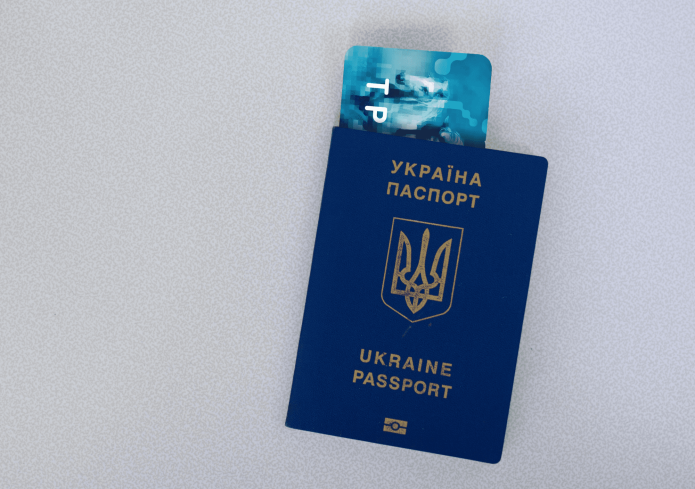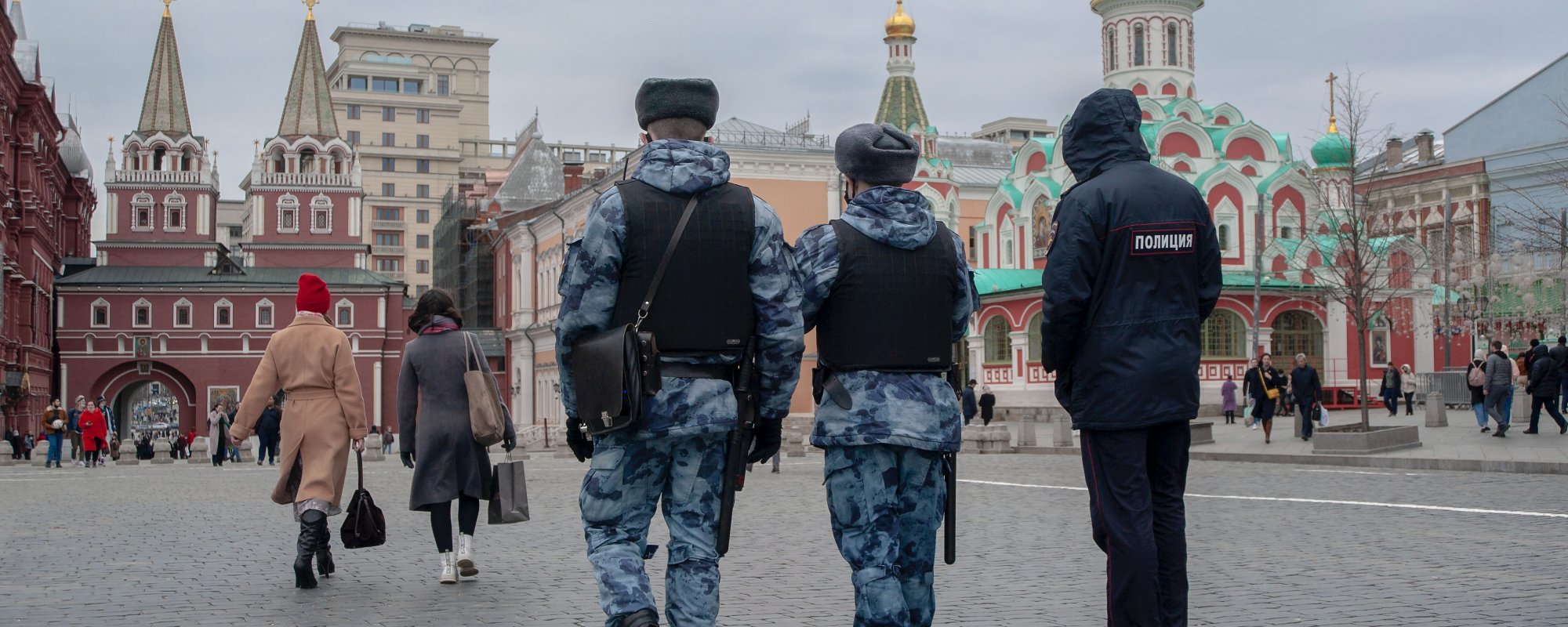The MVD and FSB received orders to carefully scrutinize all Ukrainian citizens living in Moscow. OVD-Info has spoken to two independent Ukrainian sources who confirmed this. Еhe law enforcement agents themselves didn’t seem to know what they were supposed to be doing with the Ukrainians. Some were offered Russian citizenship through a fast-track procedure, others had criminal charges for petty hooliganism fabricated against them.
G., service sector employee
During the second week of March, a friend called me. I was registered at her apartment and lived there with her a while ago. She said the police [MVD] were looking for me. I asked «Why?» The officer told her they were checking all Ukrainian citizens. I called the police officer back and we set up a meeting. He warned me on the call that he was going to check my phone—of course, I erased everything. It’s possible he did this on purpose: the guys at the police station weren’t actually that bad.
At the questioning, one officer asked a question that even he thought was funny: do I have any banned literature. I said—no.
Do I have any nationalist symbols?
— What do you mean by nationalist symbols?
— You know, the Ukrainian flag.
I said: that’s a country’s flag. They asked which side [of the war] I support.
At the end of the conversation, they asked if I was planning to get a temporary residence permit, apply for permanent residency, or get Russian citizenship. In a similar conversation with a friend of mine, they suggested that he get Russian citizenship. They asked who I communicate with in Ukraine. I wrote down my mother’s phone number in Ukraine and the address where she’s living now. They looked at my phone.
They said that they might come to my house to see how I was living. I said: fine, if you come, bring some groceries like you would for a refugee. They said they were going to check if I had any banned literature or any nationalist symbols. I said: I have the book «How to Not Give a Damn about People Who Don’t Give a Damn about You, ” is that banned literature? Them: We don’t even know what’s banned literature.
Besides me, there were other Ukrainian citizens at the station. They also called in my friend.

Ukrainian foreign passport / Photo: Mr Borys, pexels.com, mos.ru
A., student at Moscow Institute of Physics and Technology
When the war started, at first, like everybody, I was shocked, but I was only afraid for my relatives in Ukraine. The situation changed pretty quickly: on February 28th, the security services from my university called me and asked to meet. It turns out that the meeting was actually with the FSB. At first the FSB guy started: how are you? Do you need any help with anything? They asked leading questions: did I go to the protests? Did my friends go to the protests? Perhaps I would like to tell them about someone who did?
I was lucky—they didn’t search my phone or my room [in the dorm]. I know [Ukrainians] who were less lucky. I decided that I needed to leave. On March 2nd I bought a bus ticket to Riga—there was really no way to fly at that point. At the bus station, after checking my passport, they wouldn’t let me and several other Ukrainian citizens on the bus. The police at the station laughed: «Why are you [Ukrainians] leaving from here? The police have been taking everyone in from here for a couple days now. Better to leave from the suburbs.» They let a few people go and took me and a few others to the station. They didn’t take our phones and I managed to call a lawyer.
The lawyer called the station and at first, they told her that they would release me soon. That evening she called again—they said they’d release me in the morning. They photographed us, took our fingerprints. My fingerprints have been taken four times in the past month and not a single time have they actually found them in the database. We went through some questioning: what’s your name, where do you go to school. The police did that, but then an FSB guy came in to replace them.
The FSB guy started off just like his colleague at my university, with sympathy: yeah, war…Then he asked again about protests, they asked me a really funny question: «If I open the photo gallery [on the phone], I won’t find a swastika there will I?» I was flabbergasted by the question—I said: «Obviously not.» He dug around in my photo gallery, read my Telegram messages, looked at my YouTube history. He got visibly happy when he found a Team Navalny video, where the description had the phrase «Putin wants blood, ” but I told him that I had only watched the video about halfway so I could hear what one economist had to say. That was when they froze the Central Bank’s reserves and I wanted to understand what that meant.
They sent us to sleep in jail cells—three to a cell. They were already overflowing with detainees. It was hard to sleep. In the morning, they wrote up the charges against me. According to the document, I was supposedly swearing at the bus station, then a police officer came up to me, but I supposedly continued swearing. I demanded to call my lawyer, but they didn’t let me, even though the charge document itself stated that I had that right. They also wrote in the document that the police had been called because Ukrainians wanted to leave the country. They also wrote that they had taken me to the station earlier than the police had even been called.
Five others [Ukrainians] at the station and I were also charged with violating Article 20.1 of the Administrative Code (petty hooliganism). They charged one person with not having their documents in order and said that he needed to be deported. This was ridiculous: the person already wanted to leave, and now they’re planning to deport him.
At court, I managed to call my lawyer. The court didn’t want to hear our case for a long time. New pages appeared in the case file: my supposed explanation of the situation where I «admitted guilt.» Without my signature. And a new police report without the obvious mistake on the time of my arrest. My lawyer and I spent a long time explaining to the judge that all of these were lies. The judge said: «Ok fine, five days [in jail].» Four of the people got 10 days and two got 5.
One of the judges who had heard the Ukrainians’ cases came out and apologized to us. She said that she was required to hand down these decisions.
I was really scared that after my jail time was up, they’d grab me again. After I got out of detention, I managed to leave Russia. I took a car to the border (he didn’t specify which—OVD-Info) and I had another long conversation with the FSB guys there, but everything ended successfully.



